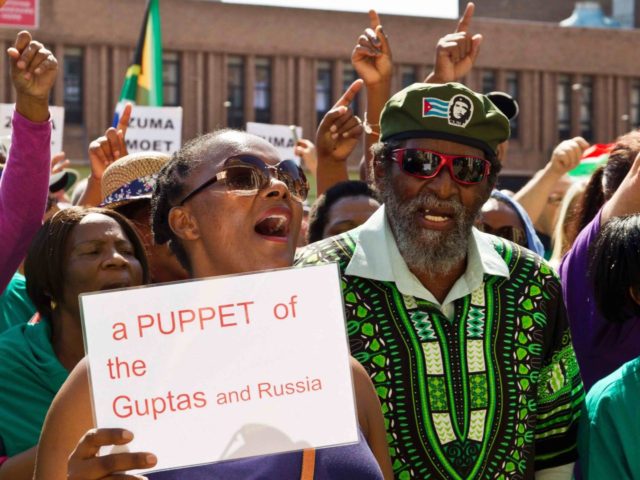News from South Africa is replete with new stories of corruption in President Jacob Zuma’s administration.
South African media describe the problem as “state capture,” through which the influential Indian-South African Gupta family has used allegedly its financial influence with the president to determine cabinet appointments, important policy decisions, and even prosecutions (or decisions not to prosecute).
The ruling African National Congress (ANC) has declined to force Zuma to resign (as it did, for different reasons, to President Thabo Mbeki), and the opposition Democratic Alliance is mired in a pointless leadership squabble that the ANC has been happy to stoke.
President Donald Trump may be able to help. As he wrestles with the swamp creatures of Washington, Trump has some leverage to drain the swamps in Pretoria and Cape Town as well, or at least to aid South Africa’s reformers.
The Africa Growth and Opportunity Act (AGOA) provides special access to U.S. markets for products from a group of countries in sub-Saharan Africa and the Caribbean. It was enacted in 2000, and was re-authorized in 2005 for another ten years.
AGOA is an effort to use trade, not aid, to benefit African countries. But it was also conceived as a tool to encourage political and economic reforms. Countries that commit human rights abuses, or that enact protectionist measures against American goods, can lose their eligibility for AGOA.
The full list of requirements is included in the text of AGOA. The President of the United States can use these as annual criteria for AGOA status.
One of the requirements for AGOA eligibility is that member countries maintain “a system to combat corruption and bribery.” That system has clearly broken down in South Africa.
President Trump could use his discretion to suspend South Africa’s AGOA eligibility until the country can reliably hold its elected officials accountable to the law. That might prompt Zuma to clean up his administration, or embolden voices for reform within the ANC.
Canceling South Africa’s AGOA membership would be a form of economic pressure, but unlike sanctions during the apartheid era, it would focus on the carrot of economic benefit rather than the stick of economic punishment. Unlike credit downgrades, which South Africa has been receiving regularly, and which can take decades to undo, exclusion from AGOA can easily be reversed once a country has taken the necessary steps toward reform.
There is also precedent for using AGOA eligibility as a lever in U.S.-South Africa relations. South Africa nearly lost its AGOA eligibility in 2015, during a dispute over the country’s effort to block poultry from the U.S. The Obama administration reviewed South Africa’s AGOA status before reaching a new compromise. Some South Africans have warned their government against new protectionist policies, lest the AGOA benefit be lost for good.
The U.S. has no particular interest in which person, or party, governs South Africa. But the U.S. does have a strong interest in South Africa remaining a beacon of democracy and good governance for the continent in general. AGOA is an appropriate tool for the president to use in advancing that interest, for the ultimate benefit of both nations.
Joel B. Pollak is Senior Editor-at-Large at Breitbart News. He was named one of the “most influential” people in news media in 2016. He is the co-author of How Trump Won: The Inside Story of a Revolution, is available from Regnery. Follow him on Twitter at @joelpollak.

COMMENTS
Please let us know if you're having issues with commenting.